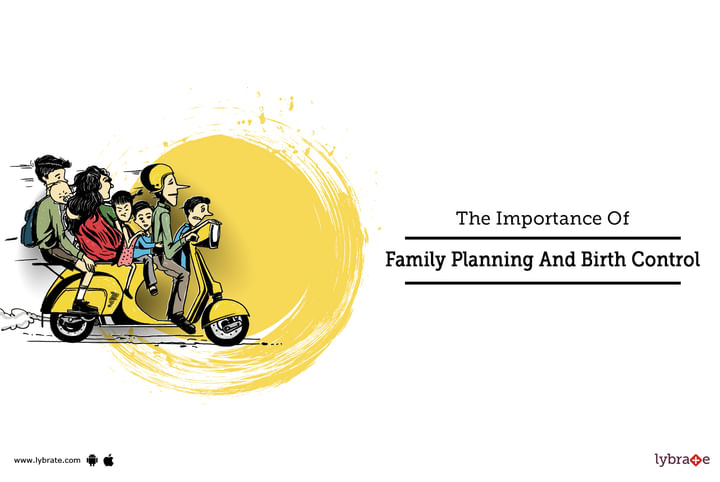The Importance Of Family Planning And Birth Control!
Family planning is a key measure in controlling the increasing population worldwide. It allows couples to anticipate and attain the desired number of children, as well as determine the spacing between childbirths. Currently, when the global population is rising uncontrollably, people must be made aware of the importance of family planning and birth control.
-
Lowers the risk of pregnancy-related complications - A women’s ability to determine when and if to become pregnant directly affects her overall health and well-being. With family planning measures, young women can space out or delay pregnancy, which in turn may help reduce the risk of pregnancy-related complications. Family planning helps to prevent multiple or unwanted pregnancies, including those of older women who are at risk of complications, miscarriage. It enables them to limit the family size, as having more than four children puts women at a higher risk of maternal mortality. Moreover, by lowering the incidence of unplanned pregnancies, family planning also minimizes the need for abortions.
-
Helps reduce infant mortality rates - Infants of those who have succumbed to childbirth injuries and complications are more likely to develop poor health and even die. Family planning helps prevent ill-timed and closely spaced pregnancies and childbirths contributing to the majority of infant mortality cases across the world.
-
Helps prevent cases of adolescent pregnancies - It is more common for pregnant adolescents to give birth to low-weight infants. These infants are at an increased risk of neonatal mortality, which in turn, has far-reaching implications on the individual, families and communities.
-
Helps educate and empower women - Family planning allows people, especially women to make informed decisions concerning their reproductive health. It provides them with an opportunity to pursue education and partake in public life, including paid jobs in various organizations. Furthermore, smaller families mean that parents have more to invest in a single child.
-
Prevents the risk of STDs - Family planning encourages the use of contraceptives to avoid unintended pregnancies and control childbirth. This also helps prevent the spread of sexually transmitted diseases, such as AIDS and syphilis, which can affect either of the partners.
-
It is the key to eradicating poverty - Unplanned pregnancies contribute to the increasing population growth, which means a lack of employment opportunities and access to education, rising demands, insufficient resources, and poverty. Family planning with proper and effective contraceptive methods helps to control population explosion, thus reducing incidences of poverty, especially in the developing countries.
Family planning is crucial in delaying the rapid-growing global population and the resulting adverse effects on the society and economy. Contraceptives for family planning should be made easily available in healthcare settings. Community health workers should step forward to provide counselling on family planning methods to people. For medical procedures, like sterilization, couples must consult health clinics.



+1.svg)
